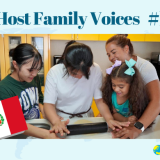Hello! This is HelloWorld Host team. This week, we interviewed a host family from Kanto area. Please take a look at what their experiences and what they learned by being a host family!
The Machinaka Cultural Exchange Program offers a unique study abroad experience where participants visit host families in Japan and engage in activities like cooking, playing games, and more.
Many Japanese students are eager to learn languages and explore different cultures.
With nearly 100 host families from over 50 countries, they not only welcome these students but also get the chance to learn about Japanese culture by hosting Japanese guests.
Please find more details here.
The Alam family, residing in the Kanto region, has warmly welcomed guests of all ages, providing them with an immersive experience of the vibrant Pakistani culture. The family consists of four members, including two daughters, and we had the delightful opportunity to interview Uroosa-san, one of the family’s daughters, who works as an IT engineer.
It’s a great opportunity to spread the positive message about our religion and culture.
– Why did you decide to join our program?
After living in Japan for six years, my parents had limited opportunities to interact with Japanese people due to the language barrier. My father stumbled upon your program, and when I researched it further, our entire family was captivated by the idea of Machinaka Cultural Exchange Program.
It not only offered us a chance to connect with people and learn about their culture, but also provided a platform to share our own Pakistani culture, which is often unfamiliar to the Japanese.
Uroosa-san said, “There aren’t many people from Pakistan in Japan, and for many Japanese, we might be the first Pakistanis they’ve ever met. Machinaka Cultural Exchange Program is an excellent opportunity for us to spread positive messages about our religion and culture.”
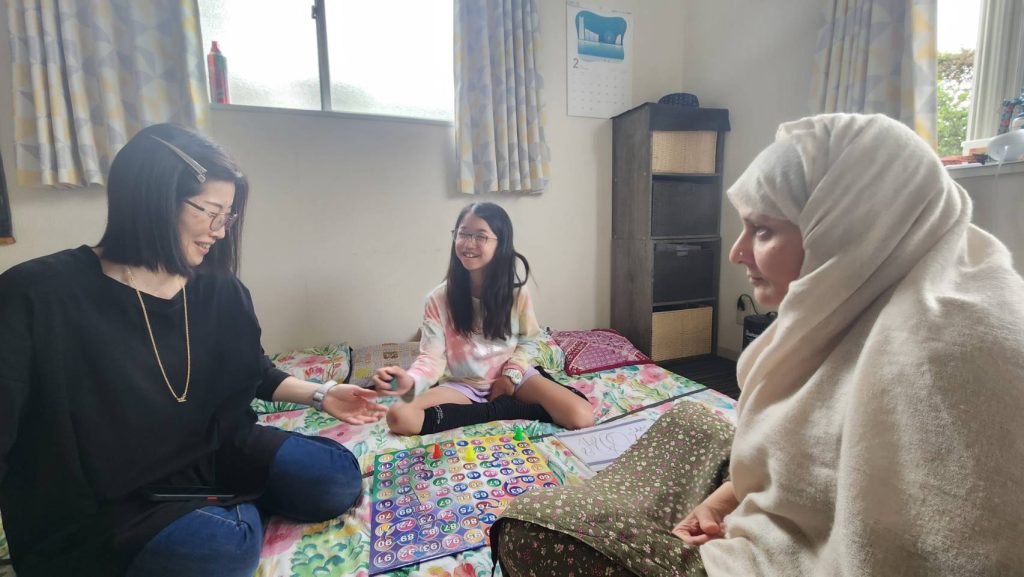
Receiving lots of questions and witnessing guests enjoy our culture is the best memory
– What was the most memorable experience?
We once hosted a junior high school girl and her mother. The girl was surprisingly curious about our daily lives and our religion. We explained that we pray and eat breakfast at 4 am, and she surprised us by waking up at that early hour to join us in prayer.
She wore a Hijab throughout her stay and asked numerous questions about our food, clothing, and beliefs. Witnessing her joy and genuine interest in our culture left us pleasantly surprised and incredibly happy.
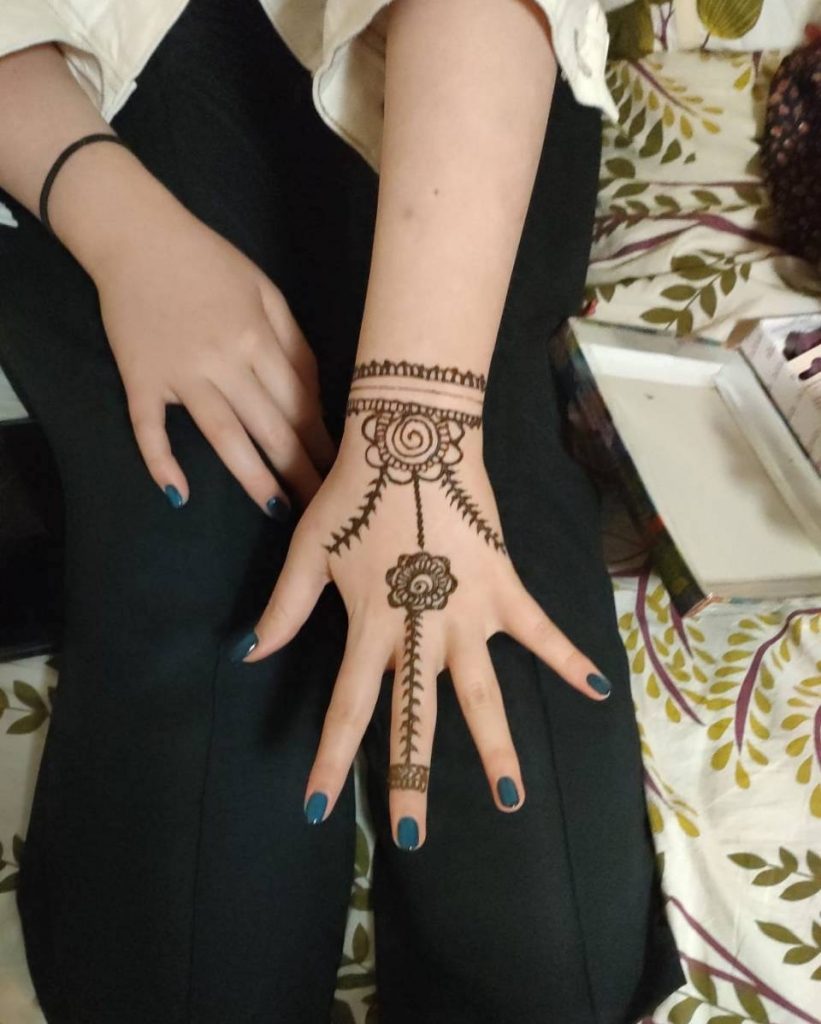
We learned the diversity within Japan but also similarity between Japan and Pakistan
– Is there anything you learned from your experience as a host family?
Hosting Japanese guests not only allows us to share our culture but also exposes us to different aspects of Japanese culture. We’ve come to realize that Japan has many dialects, and the vibes and energies of people vary based on the region. It’s fascinating to host guests from different parts of Japan and learn about the diversity within Japanese culture.
During conversations about food and cooking, we’ve discovered surprising similarities between Pakistani and Japanese cuisine. For instance, while preparing Pakistani Spring Rolls, Japanese students informed us that there is a similar dish in Japanese cuisine. It was an eye-opening and delightful surprise for us.
“We truly enjoy the curiosity of our guests, as it leads to genuine cultural exchange.”
When our family prays, we inform our guests that we’ll excuse ourselves for about five minutes. What happens is that our guests express interest in knowing what we’re doing and how we pray. So, we gladly show them our way of prayer. The concept of Halal food and dietary restrictions is significantly different from Japanese culture.
While many people are aware that Muslims eat Halal food and follow certain dietary restrictions, they often do not know the reasons behind it. Therefore, we take the opportunity to explain the reasons.
Furthermore, we enjoy showcasing the vibrant and colorful aspects of our culture, which often remain unfamiliar to many people. We display our colorful jackets, hats, and even images of intricately decorated trucks.
We also take the opportunity to explain our guests about the regional variations in traditional hats and encourage them to try them on to experience the diversity firsthand.
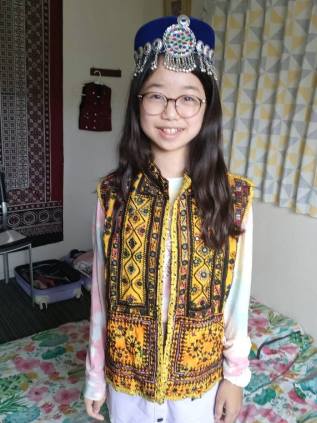
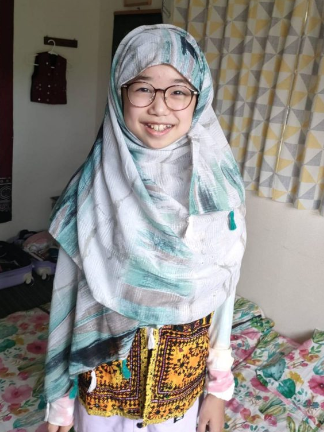
Being open and flexible to questions and their curiosity!
– What advice would you give to families who are hesitant about participating in the program?
We understand that some families may feel hesitant about opening their homes to guests because their house is their private space. It’s natural to feel uncomfortable about welcoming strangers into your personal environment. However, we can assure you that every guest we’ve hosted has shown deep respect for our private space and culture.
“The number one piece of advice I can offer is to remain open to any kind of questions and be flexible, as guests might not be aware of what is appropriate to ask or what cultural taboos exist in your household. Receiving questions from guests is a wonderful thing because it shows their genuine desire to learn more,” Uroosa-san explained.
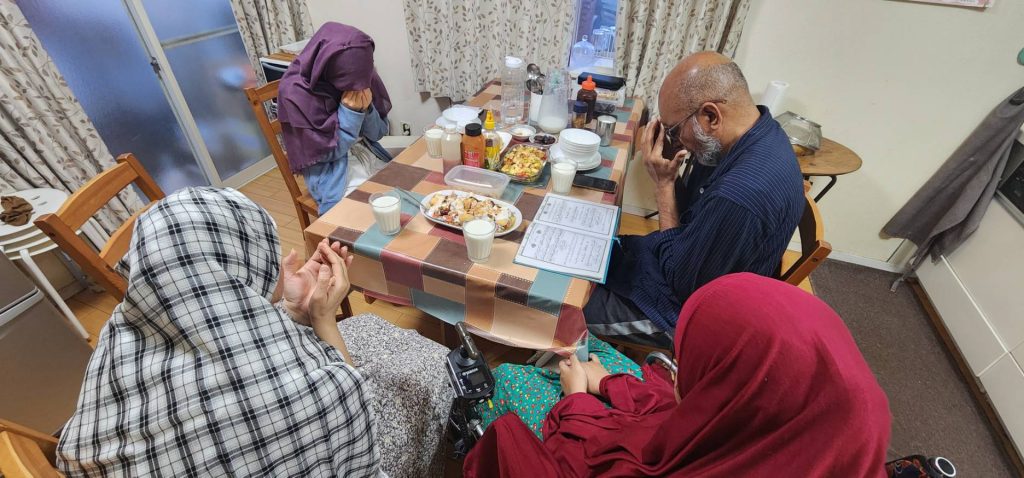
By encouraging questions, both the guests and the host family can gain valuable knowledge and insights into each other’s cultures. It becomes a mutually enriching experience, allowing for the exploration of new aspects.
Their warm hospitality, willingness to share their Pakistani culture, and open-mindedness to learn from their guests have created a truly immersive and transformative experience for all the guests!



